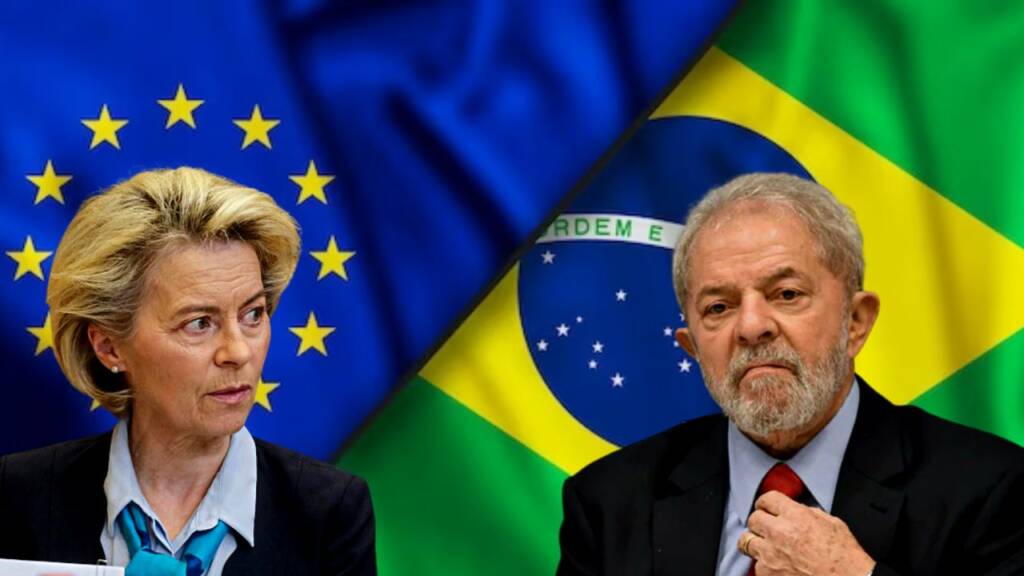European Union is interfering in Brazil’s internal affairs. It recently went on offensive against Brazil’s President Lula da Silva.
The West is laying groundwork to topple Lula da Silva.
On February 6th, European Union ambassador to Brazil, Ignacio Ybáñez took Twitter by storm. Ybáñez shared a critical opinion piece about Brazilian President Lula da Silva. He was criticised for his relations with South American leaders of states such as Venezuela, Cuba, and Nicaragua. The article was titled “Fossil” and he commented on the tweet with the line “Time passed by the window and only Carolina didn’t see it.”
I wonder why the EU ambassador to Brazil, tweeted a neolib article criticising @LulaOficial government as an “outdated” government ?! pic.twitter.com/PODXbWVFKL
— Nathália Urban (@UrbanNathalia) February 6, 2023
This post quickly went viral. Ybáñez being praised by those who oppose Lula da Silva and criticized by the President’s allies.
Lecturing host nations
This begs the important question- what are the duties of an ambassador to a foreign country?
They are responsible for representing their home country in diplomatic and political activities, negotiating agreements, protecting the interests of their home country. They promote economic, cultural, and scientific cooperation between their home country and the host. In case of Ybáñez, he represents European Union i.e., 27 member states. But, rather than promoting cooperation, what did Ignacio Ybáñez do?
Read More: Lula prepares the coffins of illegal miners in Amazon
He criticized the country’s leader Lula da Silva’s foreign policies. Are ambassadors supposed to dictate the country they are posted on internal affairs?
This is a clear case of EU’s interference in Brazil’s internal affairs. EU’s ambassador actions are an unacceptable form of interference in the sovereign affairs of a foreign country. The ambassador is trying to use EU’s power to influence the internal politics of other nations.
Ybáñez was criticized for his unauthorized meddling. Few hours after tweeting, he deleted his tweet. He apologised for the tweet. He said, “I would like to point out that on my personal Twitter account I have the habit of ‘retweeting’ other people’s opinions that are not necessarily my own. That is what I did by ‘retweeting’ an article.”
This wasn’t the first time, he did something of this sort earlier as well. In December 2021, Ybáñez publicly endorsed Sergio Moro, a former judge who sentenced Lula da Silva to prison.
“Se o cidadão dá as costas para os assuntos públicos e para de se importar se os seus governantes trabalham para o bem comum ou apenas para os seus interesses mais mesquinhos,não há democracia plena”. Bom livro de @SF_Moro pic.twitter.com/IIx2vlrSMW
— Ignacio Ybáñez 🇪🇺 (@IgnacioYbanez) December 27, 2021
While presiding over case of Lula da Silva, Moro worked in collusion and secrecy with the US Department of Justice. He paid an unusual visit to the CIA headquarters soon after becoming Bolsonaro’s Minister of Justice. The prosecutor’s communications that were released described Lula’s detention as a favour from the CIA. The West’s support for Moro was shocking.
West’s interferance
This isn’t a new phenomenon in South America. The ambassadors of US and Europe constantly feel the need to dictate how they’d like the country to be run in. Two months back, US’ Ambassador to Peru, Lisa Kenna successfully removed former Peru’s President Pedro Castillo from the office. Another example is of US ambassador to Suriname, Robert J. Faucher who has promised to give Suriname’s resources to American companies.
Read Now: Bolsonaro’s desperate attempt to evade arrest lands him in Biden’s lap
So, EU’s ambassador to Brazil’s attempt is to create a turmoil in the nation. Remember, Brazil is divided more than ever. There was also an attempt by former Brazil’s leader supporters to take over Brazil’s institutions. A small tweet can cause a huge uproar in the already divided nation. The fact that the tweet was celebrated by those who oppose Lula and his foreign policy is an affirmation to it.
The tweet saga has highlighted the need for caution when it comes to the EU’s diplomatic and economic clout.
